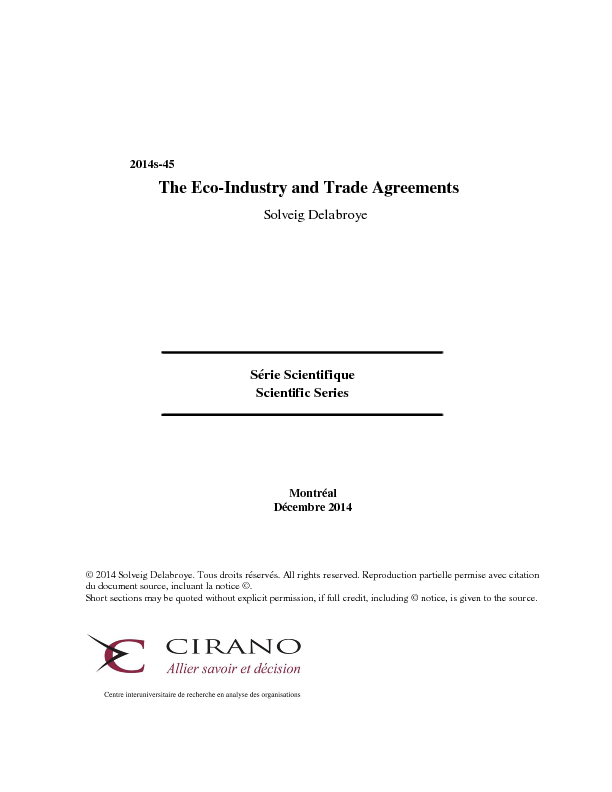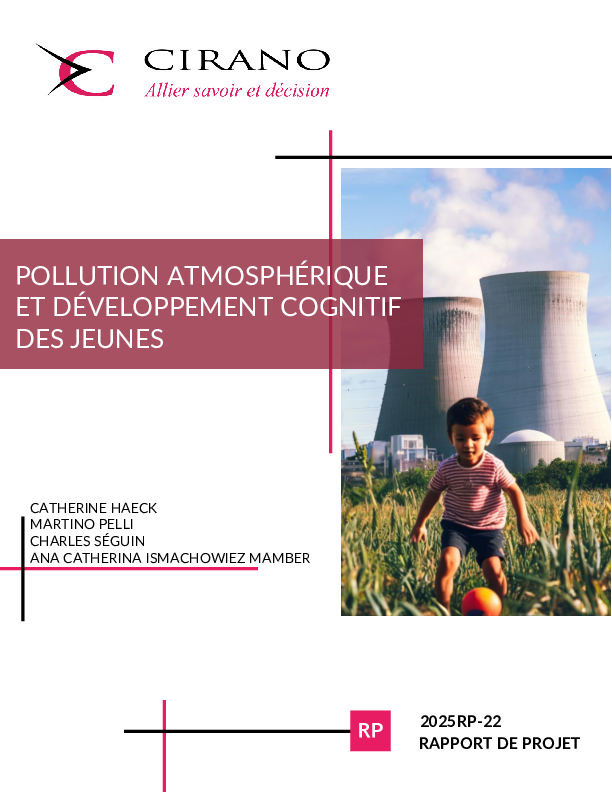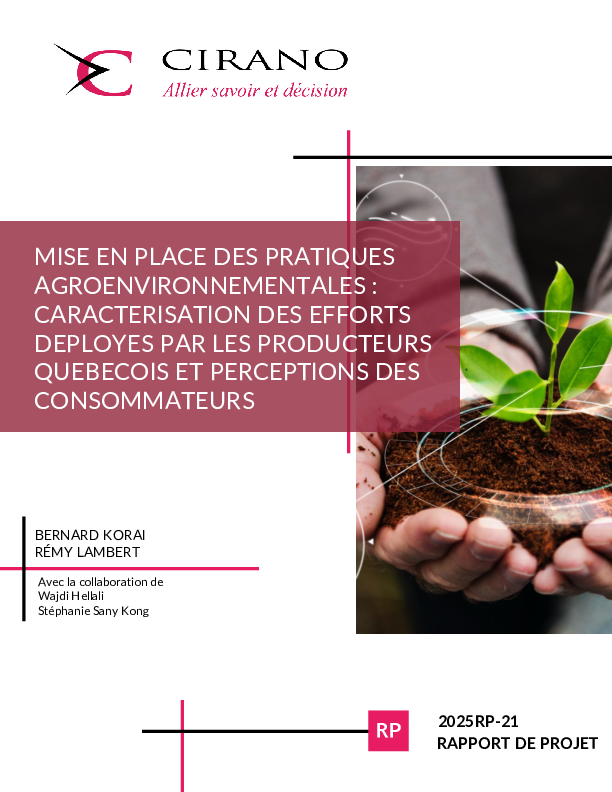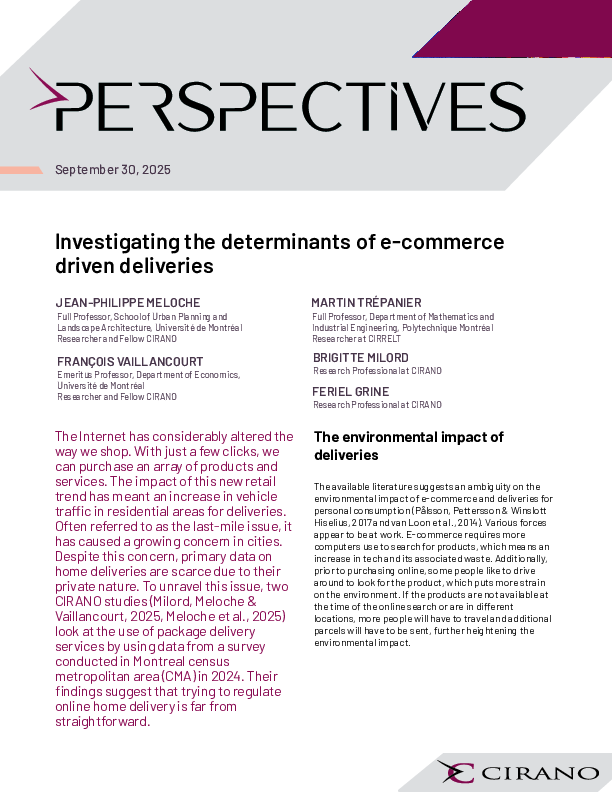The Eco-Industry and Trade Agreements
The eco-industry is a key sector for our future, both economically (the industry accounts for 3% of GDP in most developed countries) and as a tool to tackle ecological challenges. For the past decade, international organizations such as the WTO and OECD have pledged for a swift liberalization targeting Environmental Goods and Services (EGS), which are still characterized by high tariffs and non-tariffs barriers and a low level of competition. In spite of many political declarations, no international trade agreements directed specifically at this industry has been reached except from the one adopted by the Asia-Pacific Economic Cooperation (APEC) in 2012. This report examines the reasons for the apparent failure of international negotiations on this issue, specifically focusing on the idiosyncrasies of the eco-industry regarding custom regulations and on what are stakes for each party. Indeed, strategic trade analysis of the respective interests of developing and developed countries reveals asymmetric incentives, which sheds some light on the discrepancies between enthusiastic political statements and the lack of actual agreements. Finally, some past bilateral and regional trade and environmental agreements and the solutions they propose in relation to the current situation in international trade of EGS are considered, and the relevance of global trade agreements as a tool of EGS policy is discussed.
[ - ]




